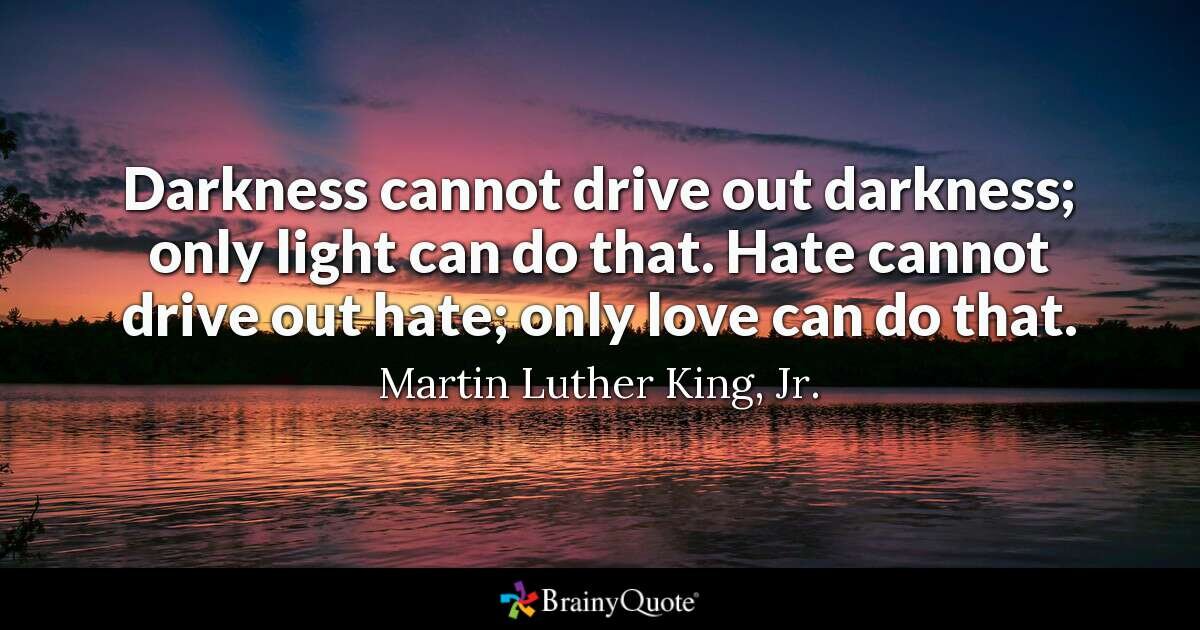Marshall Rosenberg, PhD. and the author of Nonviolent Communication: A Language of Life (NVC), made it his life-long endeavor to bring peace by helping people understand the reasons why reactivity, conflict, and most violence arise. He discovered that moralistic judgments are a significant catalyst to conflict and suffering. …
Read moreThank you from Bryn & Board
A couple of days ago I stopped by 803 SW Industrial Way to check Suite 200 and our mail. I check the space periodically to make sure it’s still okay, hasn’t flooded, etc. Everything looked good, and I felt such a mix of happiness and sadness seeing our sweet space. So many wonderful, fun, touching, moving, learning, spiritual, affectionate, astonishing moments many of us have shared in that gentle space, overseen by our scarf-wearing 6’ giraffe. How many times did people say on arriving, “Oh, I just feel better walking into this place!” …
Read moreDoable Requests Can Meet Your Needs
Compassionate Communication supports acknowledging what’s happening (observations), feeling the feelings that arise from that stimulus, connecting to the needs and values that those feelings signal, and then creating doable requests or actions to meet those needs.
Feeling the feelings and the sensations is such an important part of the process, and yet it is only one step…
Read moreEnvision a world where needs will be valued equally and met peacefully
Today is June 2 and I participated in a demonstration in downtown Bend. Hundreds of people gathered and then marched to show empathy, anger, and grief—calling for change around the issues arising from the death of George Floyd, the black man in Minneapolis who died with a policeman’s knee on his neck.
Many if not most of the people demonstrating appeared to be in their teens, 20’s, 30’s, and 40’s. I felt heartened to see so many young people participating. They were calling for racial justice, the end to police brutality, accountability, and valuing Black Lives. Many people in passing cars honked in support.
A few Bend police officers were there to “make sure everyone gets to go home safely” as one officer said to me. I saw these police engaged in friendly conversation with demonstrators and then stepping in when traffic help was needed to make sure cars and pedestrians could all pass. They were there to protect.
One of the tenets of Compassionate (Nonviolent) Communication is that we envision a world where all people’s needs will be valued equally and met peacefully. Today’s demonstration and the following statement help to bring me hope and encouragement.
Message from Bend Police Chief Jim Porter: …
Read moreWhen You Hit a Wall
At the last practice group, there were a few people who talked about hitting a wall sometime this past week, and I was one of them. I want to share that experience with you.
The whole day long I carried this unclear but ever-present sense of anxiety. (It wasn’t because of anything in particular. My guess is that it was because of everything.) With the anxiety came restlessness and dissatisfaction. Nothing seemed interesting. I was so caught up in the discomfort it became the thing that informed everything else.
Later in the evening, I decided to flip through the photo gallery on my phone—hoping for something uplifting—and I ran across a photo of some board work I had done in one of my classes. Yes, that’s right, one of my classes: I was teaching others something that I myself had totally lost sight of all day long. Although I had already told myself I could drown my feelings by reading a book, and even though I really wanted to read the book, I thought, “You know what to do.” So I put the novel aside and got out my journal. …
Read moreWhat to do when you don't have a sense of control
Wow! It was just a few weeks ago that some of us were thinking, “Could things get any crazier?” Well, the answer is obviously, “Yes!” I find it hard to take it in, and rather than overwhelmed, I feel some flavor of “shocked,” sort of like watching wide-eyed and open-mouthed without even having the ability to process it all.
I have learned to ration my news intake, finding my ability to notice a bodily feeling of dis-ease as a sign to turn off the news …
Read moreHow to Cultivate More Inner Peace
Suggestions from the Tuesday Practice Group:
Leave for appointments early. Allow time so no rushing needed.
Put things in their place so when I go to find them, they are there.
Balance order with ease—what’s my balance for inner peace?
Remind myself what I have influence and control over and what I don’t. What’s mine? What’s not mine? …
From "Changing Self Talk Into Self Care": More on Working with the Inner Critic
From the Changing Self Talk to Self Care workshop
Marshall Rosenberg, in his book, Nonviolent Communication, helps us to understand how feelings of inner ease and peace arise when we “see” and accept who we are just as we are. On the other hand, when we attack ourselves with judgment, blame, shame, guilt, or threats we don’t see or accept ourselves as we are. The impact of this is its own kind of violence, yes? To help us untangle our inner criticisms we first apply these important facts to our situation. …
Read moreOut from the Back of the Cabinet
This past week Mike and I had the somewhat arduous task of mouse proofing our house. Because we were in some denial about how significant the problem was we thought just getting a couple of humane mouse “traps” would do the trick. I think this was because we really, really didn’t want to take out each and every single thing from all the kitchen cabinets. And, of course, that is precisely what we ended up doing. …
Read moreCelebration, Gratitude and (What?) a Drawing for a Free Book!
We are delighted to report that our initial request for people to participate in our Circle of Friends of the Center for Compassionate Living brought in an additional $120/month! So, we now have $470/month in automatic deposits towards our $1000/month goal of monthly donors to create a more dependable, sustainable income for the Center.
What's This About a Book Give-Away?…
Read moreCircle of Friends
Dear Friends of the Center for Compassionate Living,
We write to you today with a touch of anxiety and mostly a sense of hope and trust. Our expenses at the Center for Compassionate Living are exceeding our revenue. …
Read moreWorking with the Inner Critic
My mind is like a bad neighborhood. I try not to go there alone.”
~ Anne Lamott
Why is our mind sometimes like a bad neighborhood?
Here are two possible reasons: The first is that over the years our brain has evolved so that it can take shortcuts called neuro-habits. …
Read moreOne of the Most Important Human Needs: To Help Others
Not only did we have bountiful snow this past week, but we also had bountiful needs met by all of the many helping hands and hearts that showed up.
Friends and family members told me stories of neighbors jumping in to help with shoveling, snow blowing, and roof raking. One friend who finds it hard to ask for help was so worried about the deepening snow on the roof that she screwed up her courage and requested to borrow a roof rake—and was happily rewarded when the owners were delighted to be asked. …
Read moreLoving Fiercely
We often picture love as romantic dinners, tender encounters, surprises, thoughtful gestures, helpfulness, and support. Admittedly these are the best parts. And yet, for me, loving is much, much more. It is also a radical commitment to take on all the obstacles—the fights, the anger, and the hurt; the stress, life’s uncertainties, and even our own insecurities in order to know something so sweet, so healing, so life-giving that our own lives would be incomplete without it. …
Read moreBe careful what you hear
Be Careful What You Hear During the Holidays
by Marshall B. Rosenberg, Ph.D.
reprinted with permission from Puddle Dancer Press
The holidays can be one of the most stressful times of the year. Family gatherings, busy schedules, entertaining, and the bustle and pressure of expectations around gift giving. In this training excerpt, world-renowned peacemaker and author, Marshall Rosenberg, gives frank advice to keep our compassion alive by shifting our thinking.
If you want to enjoy your life, particularly during high stress situations, I would strongly recommend you never hear what another person thinks. …
Read moreWhat is Nonviolent Communication?
Dear Friends!
I recently was reading an email from Puddle Dancer Press letting me know that they have put Marshall’s book, “Nonviolent Communication: A Language of Life” on sale. As I scrolled through the message I found a very helpful description of this work.
If you have ever had a hard time explaining NVC to others or wanted to encourage others to check it out, you might find this description very helpful too. After being involved for as long as I have been I also found it to be profoundly accurate. …
Read moreFrom Spinning in Our Heads to Grounding in Our Hearts
I was with a friend recently and he was very upset. He had been working out of town away from his partner for months, and she had not answered his phone calls/texts for a week and a half. Before this break in communication, she had been with a group of their friends, and she’d mentioned a new guy in the group.
Being alone and away from home, my friend had plenty of time to gnaw on the situation over the last week and a half. “She said she’s busy, but who is that busy?”…
Read moreThe Metta Meditation
Are you familiar with the Metta or Loving Kindness Meditation? The Metta is a heartfelt wish for our own well-being and the well-being of others. It is said in ever-widening circles. We start first by saying it for ourselves. This is my version:
May I be filled with kindness for my heart.
May I be well in body and mind, and safe from inner and outer danger.
May I be happy, peaceful, and free.
Practicing Acceptance by Letting Go of "Shoulds" and "Shouldn'ts"
Hi from New Mexico!!
Although we flew in, Mike and I have been driving a bit. As we go from here to there I’ve been noticing how there has been a major shift in me—a shift from needing things to be just so, and a practiced willingness to see things as they are. …
Read moreTry Translating to Compassionate Communication!
Although it certainly is helpful when the person I am communicating with has some Compassionate (Nonviolent) Communication skills, I find that I can usually connect with someone by what I call “translating” what they are saying to Nonviolent Communication (NVC). Translating means I guess their feelings and needs. If my guess isn’t accurate, the person will let me know, and then I can connect with whatever feelings and needs they are experiencing. …
Read more




















